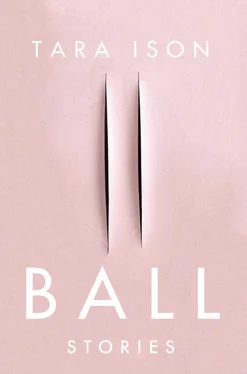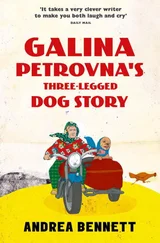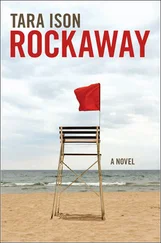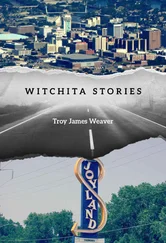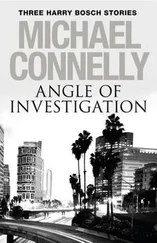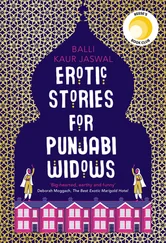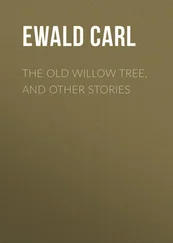Tara Ison - Ball - Stories
Здесь есть возможность читать онлайн «Tara Ison - Ball - Stories» весь текст электронной книги совершенно бесплатно (целиком полную версию без сокращений). В некоторых случаях можно слушать аудио, скачать через торрент в формате fb2 и присутствует краткое содержание. Год выпуска: 2015, Издательство: Soft Skull Press, Жанр: Современная проза, на английском языке. Описание произведения, (предисловие) а так же отзывы посетителей доступны на портале библиотеки ЛибКат.
- Название:Ball: Stories
- Автор:
- Издательство:Soft Skull Press
- Жанр:
- Год:2015
- ISBN:нет данных
- Рейтинг книги:3 / 5. Голосов: 1
-
Избранное:Добавить в избранное
- Отзывы:
-
Ваша оценка:
- 60
- 1
- 2
- 3
- 4
- 5
Ball: Stories: краткое содержание, описание и аннотация
Предлагаем к чтению аннотацию, описание, краткое содержание или предисловие (зависит от того, что написал сам автор книги «Ball: Stories»). Если вы не нашли необходимую информацию о книге — напишите в комментариях, мы постараемся отыскать её.
Rockaway
A Child Out of Alcatraz
Reeling through Life
Ball With a keen insight into the edges of human behavior and an assured literary hand,
is the new book by one of the West’s most provocative stylists.
Ball: Stories — читать онлайн бесплатно полную книгу (весь текст) целиком
Ниже представлен текст книги, разбитый по страницам. Система сохранения места последней прочитанной страницы, позволяет с удобством читать онлайн бесплатно книгу «Ball: Stories», без необходимости каждый раз заново искать на чём Вы остановились. Поставьте закладку, и сможете в любой момент перейти на страницу, на которой закончили чтение.
Интервал:
Закладка:
Then one bland, humid Friday morning last April, the phone rang with someone telling me that weekend’s excursion to Joshua Tree was called off due to an outbreak of flu at some East L.A. junior high. Josh was outside loading the bus and, when I told him, got his edgy, penned-up animal look, the one that says let me out .
Shit, he said. He sighed, regarded the bus a moment. Then he turned back to me. Okay, let’s go. We’ll go, just us two.
Now? I said.
I’m packed up. I have the permit. It’s April. I can’t stay here all weekend, he said, gesturing at the street and pavement. He had refused to plant grass on our little front plot, saying lawn in Los Angeles was an environmental insult. I’d thought maybe just a rose bush would be nice, but instead we had a found-rock garden. We’d spot lost-looking rocks in alleys or streets, bring them home. At first I’d thought it was fun, kitschy, but today the rocks just looked forced. Horns honked down on Sunset Boulevard; there was a siren’s rise and ebb, a jet, a helicopter’s anxious drone, the hot gasp of wetted city cement, the smell of exhaust.
What’s the problem, Holly? he said. You said you wanted to go.
I saw us going back inside the apartment where it was safe and where he didn’t want to be, saw spending a weekend together, just us two, with four walls and a roof and a window unit that cooled and filtered air. Then I saw him saying I’ll go, I’ll just go myself , and then going by himself. Leaving me in favor of all those dangers. Wandering off and never coming back. I saw the snake venom coursing through and no one ready with a knife; I saw him dead from exposure and no one there to dig his grave. I saw turkey vultures swooping in to pick his bones clean. This wasn’t him wanting to leave me, I realized with relief; this was him needing me. This was him not wanting to get hurt, not wanting to be alone, not wanting to let go. Wanting to let me in to fill up all his precious space.
I went inside and put on my boots and sunblock. We transferred mummy bags and shovel and cooler and first aid kit and wheelbarrow and gallons of water from the school bus to his truck, left Hollywood, and drove a few hours east from Los Angeles along the 10, where the world went dull and beige, full of highway and dirt without nap, tired motels and shopping malls and hamburger drive-thrus collapsed at the foot of mountains as if dumped off cliffs. Then, somewhere beyond the turnoff for Palm Springs, higher and higher up and farther on Route 62, the dunnish air cleared and the Mojave Desert slowly unrolled into lucid bloom. Magentas, lemons, purples, oranges, whites, from the horizon to us, a sudden extravagance, and the wind-snap of sage, nectar, honest rock, succulent air.
See? he said. April.
I pictured it all dead, I said.
It’s never dead. It looks dead in fall and winter, sometimes, when a lot of it’s dormant. But then it all explodes.
I took off my boots and hung my feet out the window, so my toes could breathe. I leaned back against him, and he put his arm around me, poked his nose in my ear. He kissed my throat and said, See?
Yes, I said.
No, look, a Joshua tree, he said, pointing.
We were passing a lanky, trunked thing, its branches outstretched in stiff torsion, each one ending in a tuft of spines. We passed another one, then three.
Joshua trees, he said. This is the only place in the world they live. And they live hundreds of years. The Mormons called them that. They drove out in their wagons to California and suddenly saw all of these and said they looked like Joshua, his arms up, welcoming them to the Promised Land.
He slowed the truck. The tree didn’t look like a welcoming prophet to me. Its trunk was covered in spikes scaled like a chain mail of daggers. The raised branch-arms looked deformed. It looked like an armored soldier with boiling oil poured down his back, caught in the first moment of panicked, agonized cringe.
We passed more, and then many, and then they were everywhere. It was a whole field of trapped and seared Joshuas trying desperately to grip the sky, shaking twisted, crippled fists at God.
WE STOPPED ATthe Oasis Visitor Center in Twentynine Palms. Josh registered the truck at the backcountry board while I examined glass jars of jewel-colored cactus marmalades, cactus pickles, cactus candy. The labels showed a thorny cactus fruit split in half, revealing tender, pulpy insides. I bought granola bars and another half-liter bottle of water and leafed through a book called Common Cacti of the Southwest .
Look, I said to him, showing. I’m learning all about cacti. We should get this.
Holly, he said. He took the book from me and put it back. You’re here. You don’t need a book to show you here.
All right, you teach me.
Just be patient. He smiled at me as I tore the wrapper off a chocolate chip granola bar and ate it. You have to be patient in the desert, Holly. Give it up.
Before leaving, we walked up close to a smallish Joshua tree. A woodpecker rapped at a branch. Josh showed me wrens nesting in the tree’s topmost spines and thumbnail moths collecting pollen from the blossom clusters, laying eggs. He nudged a toppled, decaying limb with his foot; a kangaroo rat scuttled away, and termites surged.
It’s the perfect ecosystem, he said in his teacher’s voice. All in itself. The living tree is food and home for birds and insects and rodents. And then even when it’s dead, it’s food and home. The energy just keeps cycling, being transformed. There’s life everywhere, if you just look for it.
Oh, God, I said, ducking. In front of me was a fat lizard impaled on a spike through its belly. Hanging on a low Joshua tree branch I almost walked into. Its sleepy lizard eyes were just starting to crust; flies buzzed.
Who would do that? I asked.
A shrike, probably, he said. Or a hawk. Saving it for dinner.
I thought the desert was so peaceful, I said.
No, the desert is so honest, he said.
He saw a bit of trash nearby, a dirty paper flap. He picked it up and tossed it along with my granola bar wrapper into the forest-green Hefty bag in the bed of the truck. He’d brought along a whole collection of plastic bags, from tiny ziplock to body-bag size. Leave no trace .
Читать дальшеИнтервал:
Закладка:
Похожие книги на «Ball: Stories»
Представляем Вашему вниманию похожие книги на «Ball: Stories» списком для выбора. Мы отобрали схожую по названию и смыслу литературу в надежде предоставить читателям больше вариантов отыскать новые, интересные, ещё непрочитанные произведения.
Обсуждение, отзывы о книге «Ball: Stories» и просто собственные мнения читателей. Оставьте ваши комментарии, напишите, что Вы думаете о произведении, его смысле или главных героях. Укажите что конкретно понравилось, а что нет, и почему Вы так считаете.
